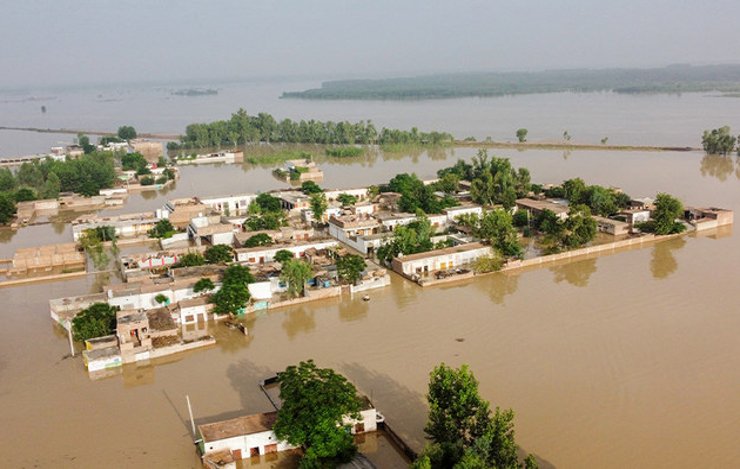ISLAMABAD: Economists raised questions about whether the finance ministry will change its economic targets after analysing the flood disasters across Pakistan.
A document of the finance ministry showed that the floods force the government to revise the GDP target as it will be lower than expectations of the International Monetary Fund (IMF). It was predicted that the GDP will be recorded at around 2.3% in FY23 as compared to the IMF’s forecast which was 3.5%.
It further stated that the losses due to the flood will be around $9.3 billion or Rs2,022 billion, whereas, severe damages are expected to crops in Sindh, Balochistan and Khyber Pakhtunkhwa (KP) as the recent flood shook the agriculture sector. The Agri sector growth is expected to decelerate by 0.7% from the annual plan of 3.9%.
The industrial sector growth is estimated to come down by 1.9% from the annual plan of 5.9%, whereas, the pos-flood growth of services is expected to be 3.5% against the target of 5.1%.
Inflationary pressure is still persistent and with supply glitches due to communication failures that will further aggravate, the ministry analysed. It added that despite approval from the IMF, external woes are not yet over and the liquidity position needs to be strengthened with the help of friendly countries.
A few days ago, Finance Minister Miftah Ismail told Bloomberg that the inflation rate will be 15 per cent in the current fiscal year, whereas, it was inevitable to ban imports of luxury items for a long time.
“I want to see a Pakistan that lives within its means. That’s it,” Ismail, 57, told Bloomberg News. “Nothing can happen in one year, but we can start.”
The outlook has been further complicated in the aftermath of historic floods, which could have an economic impact of at least $10 billion, adding to a list of problems for Ismail that includes political turmoil and raging inflation.
Less than a week ago the International Monetary Fund gave Pakistan a $1.16 billion lifeline to avoid an imminent default. Pakistan also secured pledges for a total of $9 billion in investments and loans from Qatar, Saudi Arabia, and the UAE. Ismail said he expects a $1 billion investment in listed state-owned companies to materialize in about a month.
Ismail expects economic growth of more than 3.5% for the fiscal year that started in July, down from an initial target of 5%. He predicts that inflation, running at the highest in 47 years and the second highest in Asia, is close to its peak and will average 15% for the year.
Pakistan’s export revenue is dominated by textiles, and much of its cotton crop was washed away. The government will allow the textile industry to import as much cotton as it needs to keep the looms running. Islamabad is now also importing tomatoes and onions from Afghanistan, Iran and Turkey after shortages shot prices higher, Bloomberg reported.
Economists say that the federal government will have to change its economic targets to avoid further financial woes in the future.

